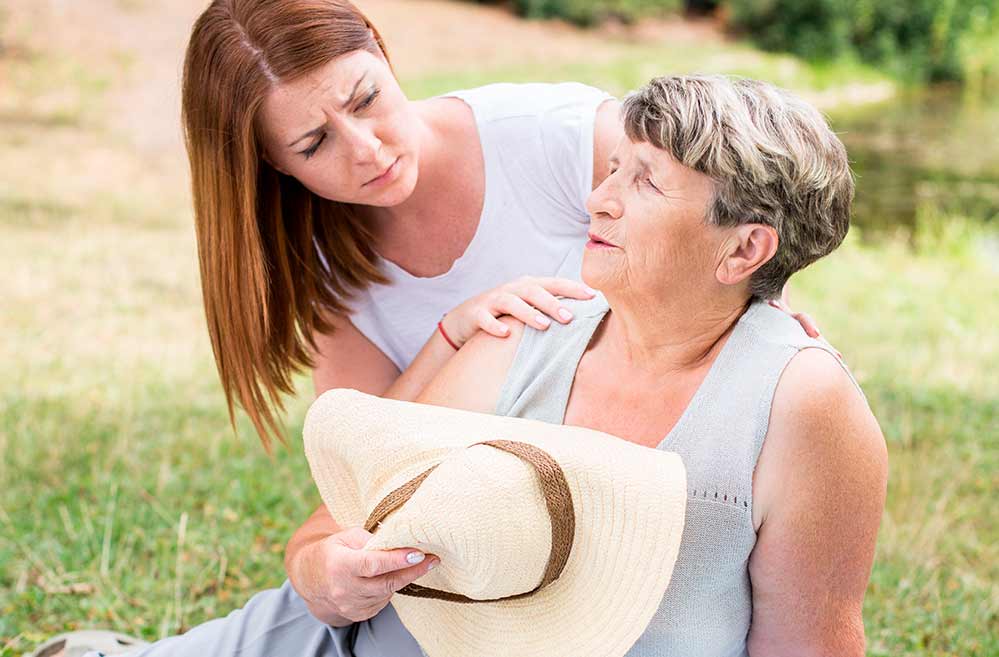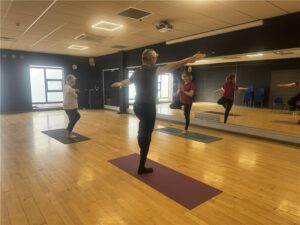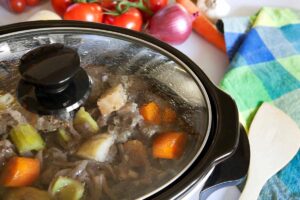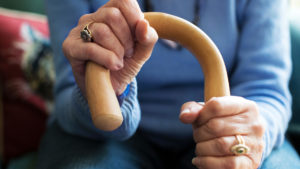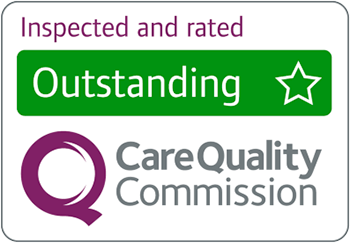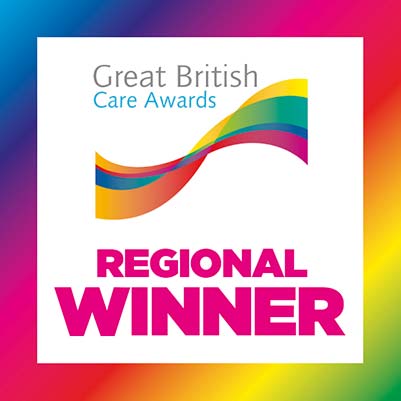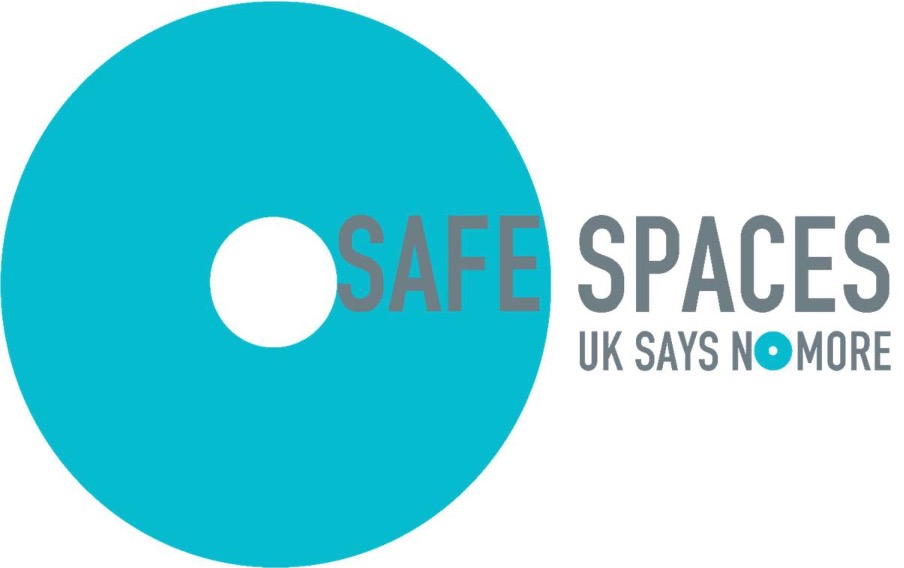After a long winter in lockdown, it feels like this year’s summer has taken a long time to reveal itself but it seems the sun is finally ready to put in a prolonged appearance, with the Met Office predicting a UK heatwave during the last two weeks of July.
If the predicted hot weather forecast is correct, many of us will look forward to a decent sunny spell and some time spent in gardens or even by the seaside but it is important to remember to take care as the summer intensifies and the temperatures rise.
During the summer, when temperatures remain high over a period of time, the effects on the elderly can be very severe. Our carers are being urged to look out for the signs of heat-stroke and take extra precautions to keep cool in hot weather.
The NHS suggests elderly people over 75 are most at risk of heat stroke and the symptoms of heat stress, particularly those living alone or in a care home. Alternative care options include having a live-in carer which offers many benefits for wellbeing all year round and in the summer months, our trusted carers ensure their clients can enjoy the sunshine whilst being cared for with sensible precautions against excessive heat.
Having a one-to-one carer at home provides you with the freedom to enjoy your own garden in the summertime, watching the flowers come into bloom for another year. Your family and friends can visit at any time of day and you can take walks or day trips accompanied by your carer whenever, and wherever, you please. In the heat of summer when you need to cool down, your carer is there to help you take a cooling shower or bath if you need it and you have the freedom of your own house to sit in a spot where the temperature is most comfortable.
In particular, those with cardiac and respiratory illnesses, learning or physical disabilities and people living with dementia conditions should take extra care. Our expertly trained carers know that the best defense against heat-related illness is prevention. Staying cool and making simple changes in your fluid intake, activities, and clothing during hot weather can help you remain safe and healthy.
Heat stroke can be life-threatening so stay alert for signs of heat stress in the elderly and seek medical help if symptoms persist or worsen. AGE UK offers advice to watch out for certain signs including:
Symptoms of overheating, caused by overheating and dehydration:
- Muscle cramps in the arms, legs and stomach
- Mild confusion, sleep problems or weakness
What to do:
Rest in a cool place and drink plenty of fluids.
Seek medical advice if symptoms persist or worsen.
Symptoms of heat exhaustion and heatstroke, caused by prolonged exposure to excessive heat:
- Headaches, dizziness, intense thirst
- Heavy sweating, fast pulse
- Nausea and vomiting
What to do:
Find a cool place and loosen clothes. Drink plenty of water or fruit juice. Sponge yourself with cool water or a cool shower.
You should expect symptoms to improve after 30 minutes but if you are concerned, call your doctor or NHS 111 for advice.
Symptoms of heatstroke
Heatstroke is a life-threatening condition which can develop suddenly and without warning, especially if symptoms of heat exhaustion are not treated.
- Confusion, disorientation, seizures, loss of consciousness
What to do:
Call emergency services on 999 immediately
If you have a community alarm, press the button on your pendant to call for help
Whilst waiting for an ambulance, ensure that clothes are loosened, find a cool place, sponge down with cool water.
Tips for staying safe in the heat of summer
Protect your skin – Apply sun screen with a minimum SPF30 every two hours.
Stay out of the sun – If you must be out in the heat don’t go out during the hottest part of the day between 11am and 3pm. Plan your activities so that you are outdoors either before noon or in the evening. While outdoors, rest frequently in a shady area.
Have cool baths or showers – and splash your face with cool water, or place a damp cloth on the back of your neck to help you cool off.
Stay in the coolest parts of your home – especially when sleeping. Keep curtains and blinds closed in rooms that catch the sun. Remember that lights generate heat so turn them off when possible. Keep windows shut while it’s cooler inside than out. If it’s safe, you could leave a window open at night when it’s cooler. Fans can help sweat evaporate but don’t cool the air itself, so don’t rely on them to keep you well in the heat.
Wear appropriate clothing – Wear as little clothing as possible when you are at home. Choose lightweight, light-coloured, loose-fitting clothing.
Stay hydrated – drink lots of fluid even if you aren’t thirsty. Aim for 6–8 glasses a day and more if it’s hot. If you usually rely on drinks with caffeine in them, such as tea, coffee or cola, limit these and have water, fruit juice or decaf drinks instead. Avoid alcohol as it can make dehydration worse.
Eat normally – even if you aren’t hungry, you need a normal diet to replace salt loss from sweating. In addition, try to have more salads and fruit, as these contain a lot of water. Avoid hot foods and heavy meals as they add heat to your body.
Food hygiene – Bacteria on food can multiply quickly in hot weather, which increases the risk of food poisoning. Put chilled food in the fridge straightaway. Keep it in cool bags when taking it home from the shops or out for a picnic. Don’t leave food out in a warm room or in the sun.
Stay tuned – to the weather forecast on the radio or TV, or on the Met Office website.
Plan ahead – to make sure you have enough supplies, such as food, water and any medications you need.
Pets – Bring your pets indoors with you to protect them. Give your outdoor animals plenty of fresh water, leave the water in a shady area, and consider wetting the animal down.
Remember – to check up on friends, relatives and neighbours who may be less able to look after themselves.
If someone feels unwell, get them somewhere cool to rest. Give them plenty of fluids to drink. Seek medical help if symptoms such as breathlessness, chest pain, confusion, weakness, dizziness or cramps get worse or don’t go away.
For more information visit:
